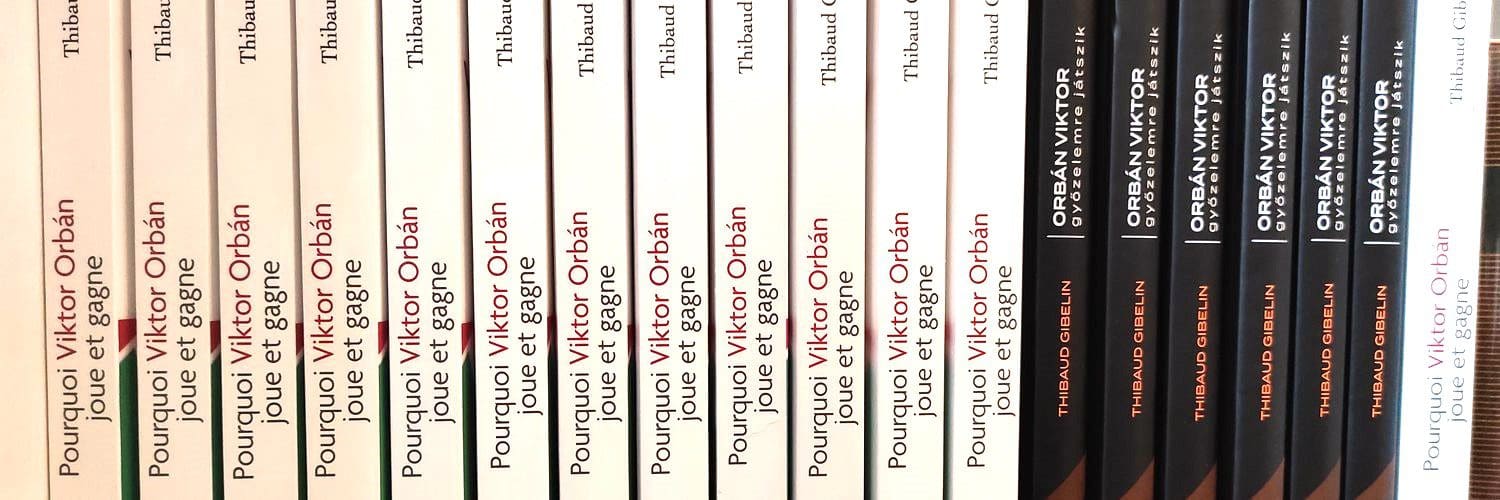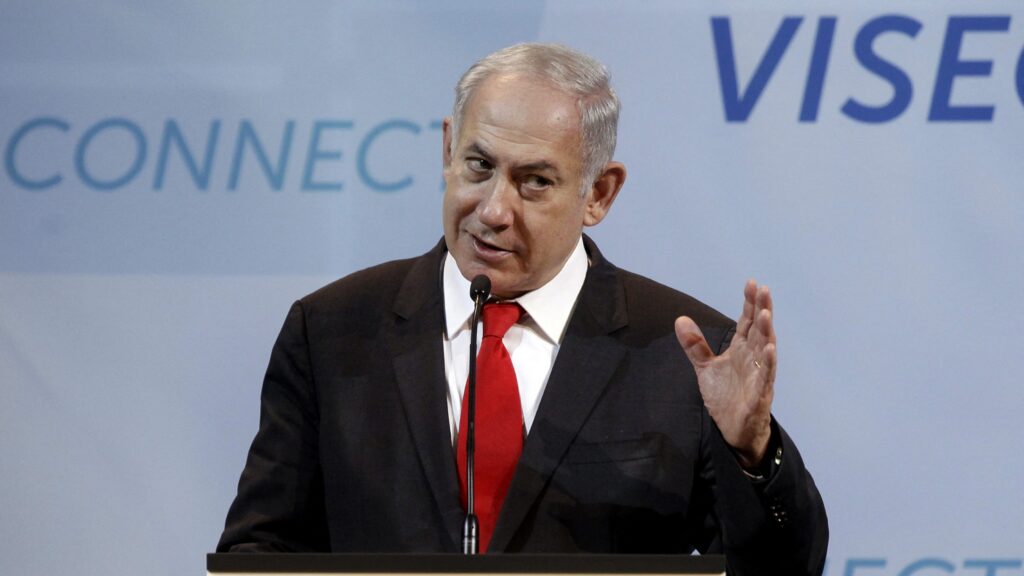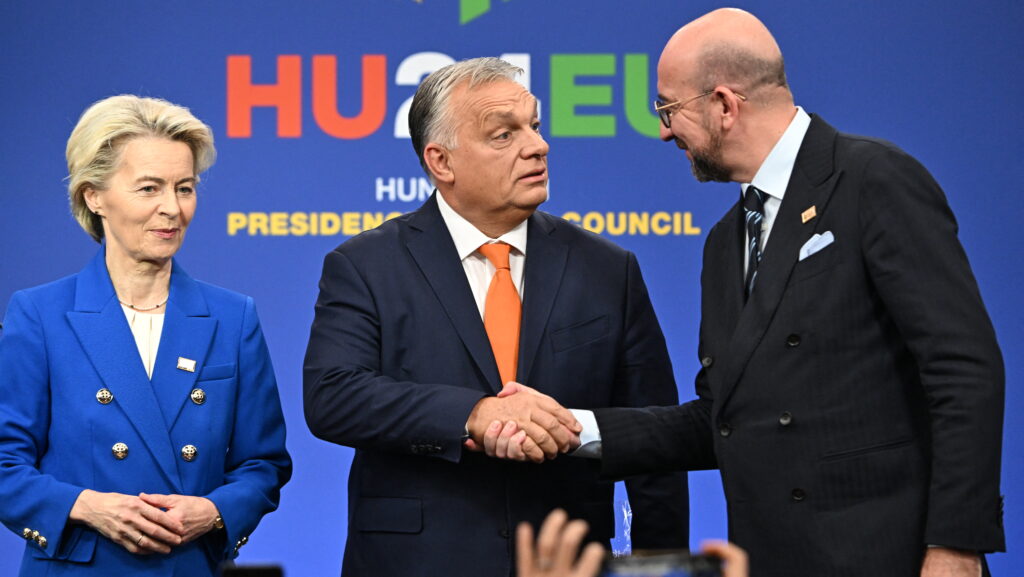The Hungarian prime minister offers a successful alternative for Europe, says French political scientist Thibaud Gibelin, MCC guest lecturer, whose book titled Viktor Orbán is Playing to Win (Pourquoi Viktor Orbán joue et gagne) was recently published in Hungarian by MCC Press.
You start your book from a far-off place, covering the medieval history of Central Europe, and a large part of the map supplements also refer to this period.
When we talk about Christianity and the Middle Ages in France, we think mainly of France. Even the Germans joined the Christian West later. Most of the knights of the crusades came from what is now France, even though those kingdoms were independent of Paris. So the French are mainly interested in their own past. But this attitude ignores Central Europe, which is now part of the West because it joined it hundreds of years ago. The godfather of the Czech monarch Charles IV, for example, was a French king, and Charles himself was brought up in Paris, had a French wife and wanted to bring the French Golden Age to Prague. Such connections cannot be ignored.
In your book, you make a bold claim: you believe that Fidesz’s politics dates back to King St Stephen of Hungary.
Politics needs myths, and Fidesz is more than a group of young democrats formed before the regime change. Europe is faced with the fall of Western liberalism. We have a huge void to fill. The failed myth of modernity needs to be replaced with a new myth that draws on the old roots: the ancient Roman, Greek and Christian traditions. Fidesz says that the history of the nation began with the conquest of the Carpathian Basin and continues to this day. Long-term politics requires solid ground, and that ground can be the continuation of the Hungarian tradition that has been built up over these years.
You write a lot about the image of or ‘civic’ Hungary. What do the French have in mind when they hear this word?
At first they would probably misunderstand it, because there are two possible French translations: bourgeois and citoyen. The former essentially describes an economic position in society. It is the capitalist elite, which professes views that are precisely the opposite of bourgeois values: it is not interested in the common good, only in its own economic interests, it is pure egoism. The latter, on the other hand, knows the values of their predecessors, cares about their city, puts their duties before its rights. The collective identity of the city is more important to the citoyen than their individual interests. Citoyens believe that the greatest success people can achieve is to dedicate their talents at the service of the common good. This is the kind of civic mentality we French also know. It existed in a certain sense before the French Revolution, since the nobility were responsible for protecting the common good, for paying taxes with their blood. The absolutist state then replaced feudalism and stripped the nobility of their functions. The legitimacy of the aristocracy disappeared and was replaced by the citizen.
What do you see as the uniqueness of Viktor Orbán?
Orbán is unique because he comes from the people and understands what the people want. At the very time when the people hated communism, he was an anti-Communist activist. He did the best thing for Hungary at the time by bringing the country up to Western standards. But then, that was what the people wanted, too. But after the 2008 crisis and the fall of the Socialist governments, he realised that the people wanted something different: something based on national tradition rather than on a specific political model—that is illiberalism. The people wanted something that was not the importing of failed Western systems. Orbán understands and follows the will of the people.
Is Orbán different from Western politicians in that regard?
The Hungarian prime minister not only understands the people, but is also able to give direction and to synthesise. He can bring the people’s expectations in line with what is achievable. What makes him unique is that he can do both at the same time. Populism often fails because its leaders can only protest against bad things, but are unable to build anything instead. Orbán not only protests, but offers something better.
In your book you say that the 2015 migration crisis was a defining moment for Orbán.
On the one hand, it was the moment when Orbán went against the Western model openly. The West believed that, for emotional reasons, it was necessary to break the law, not to respect the rule of the protection of the external borders of the Schengen area. Hungary decided to abide by the law. There had been disputes with Western Europe before as well, but they were mainly technical disputes. But from at that point onwards, the debate was about Hungary showing that it is possible to be a European nation without wanting to be an ethnically mixed country. The Western elites see it differently: they have given up the image of a homogeneous society. On the other hand, migration has given the V4 an opportunity to reinvent and update itself. It allowed them to find common ground, which was much easier then than it is now with Ukraine. The migration crisis gave the opportunity for Central Europe to form a cohesive unit within the EU nations.
At the end of your book, you write of the dawn of a new era. What does this have to do with Hungary?
I think Hungary is the country that is closest to common sense. It is an interesting model for other countries, but not an ideology that can be copied and pasted in the way that liberals try to do with their own ideology. The book was written before the war in Ukraine, but that does not change the equation: Hungary is the only country that is seeking peace, rather than being interested in forcing war. Unfortunately, the mainstream is doing the latter, but this is not in the interest of Europeans, but in the interest of foreign powers. Hungary is a workable example of action and strategy.
Click here to read the original article








